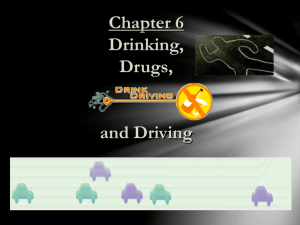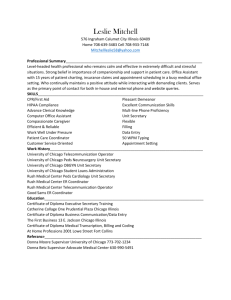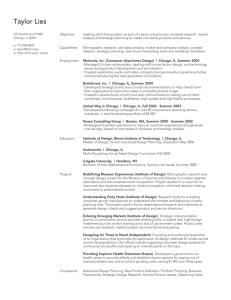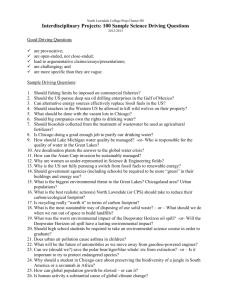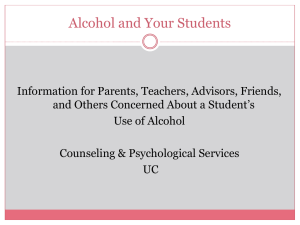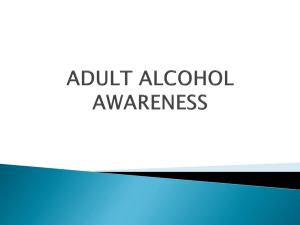ECheckup_Questions
advertisement
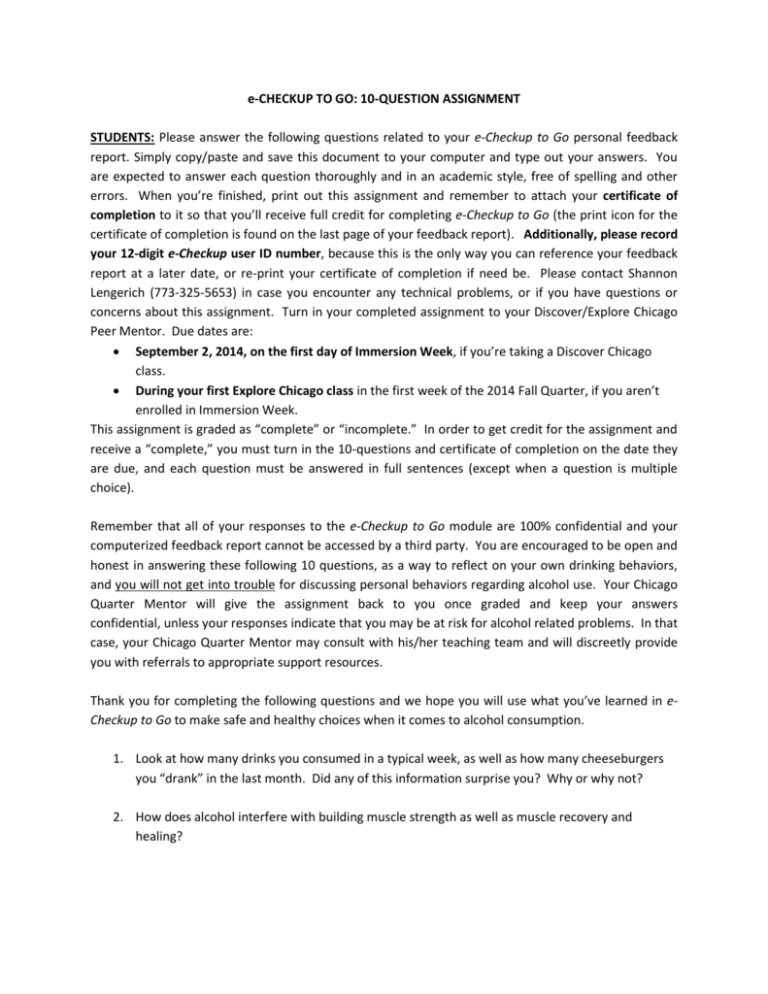
e-CHECKUP TO GO: 10-QUESTION ASSIGNMENT STUDENTS: Please answer the following questions related to your e-Checkup to Go personal feedback report. Simply copy/paste and save this document to your computer and type out your answers. You are expected to answer each question thoroughly and in an academic style, free of spelling and other errors. When you’re finished, print out this assignment and remember to attach your certificate of completion to it so that you’ll receive full credit for completing e-Checkup to Go (the print icon for the certificate of completion is found on the last page of your feedback report). Additionally, please record your 12-digit e-Checkup user ID number, because this is the only way you can reference your feedback report at a later date, or re-print your certificate of completion if need be. Please contact Shannon Lengerich (773-325-5653) in case you encounter any technical problems, or if you have questions or concerns about this assignment. Turn in your completed assignment to your Discover/Explore Chicago Peer Mentor. Due dates are: September 2, 2014, on the first day of Immersion Week, if you’re taking a Discover Chicago class. During your first Explore Chicago class in the first week of the 2014 Fall Quarter, if you aren’t enrolled in Immersion Week. This assignment is graded as “complete” or “incomplete.” In order to get credit for the assignment and receive a “complete,” you must turn in the 10-questions and certificate of completion on the date they are due, and each question must be answered in full sentences (except when a question is multiple choice). Remember that all of your responses to the e-Checkup to Go module are 100% confidential and your computerized feedback report cannot be accessed by a third party. You are encouraged to be open and honest in answering these following 10 questions, as a way to reflect on your own drinking behaviors, and you will not get into trouble for discussing personal behaviors regarding alcohol use. Your Chicago Quarter Mentor will give the assignment back to you once graded and keep your answers confidential, unless your responses indicate that you may be at risk for alcohol related problems. In that case, your Chicago Quarter Mentor may consult with his/her teaching team and will discreetly provide you with referrals to appropriate support resources. Thank you for completing the following questions and we hope you will use what you’ve learned in eCheckup to Go to make safe and healthy choices when it comes to alcohol consumption. 1. Look at how many drinks you consumed in a typical week, as well as how many cheeseburgers you “drank” in the last month. Did any of this information surprise you? Why or why not? 2. How does alcohol interfere with building muscle strength as well as muscle recovery and healing? 3. Which factor(s) determine a person’s blood alcohol concentration (BAC)? Circle the best answer. a. Gender b. Metabolism c. Number of drinks consumed and how fast you drank them d. Use of other drugs e. Food intake f. All of the above 4. Look at your personal BAC chart in your feedback report. To reach a BAC of .08, the legal limit for driving, how many drinks would you have to consume in the least amount of time? (Example: 2 drinks in one hour.) 5. Look at the “risk scale.” Were you deemed to be low, medium, high, or very high risk for alcohol-related problems? Do you agree with your personal score? Why or why not? 6. Look at the pie charts in the table “How Does Your Drinking Compare?” Discuss your perceptions about other students’ use of alcohol and marijuana compared to the actual numbers. How close or far off were your perceptions? Were you surprised by any of the real numbers? Why or why not? 7. If you are heavily drunk or intoxicated, your ability to tell if someone is giving consent to sexual activity can be impaired. What should you do in such a situation? Why? 8. Is this statement true or false? “A person cannot give consent (no matter what s/he might say) if they are intoxicated as a result of alcohol. Having sex with a person in that state can be legally considered sexual assault/rape.” 9. Please discuss at least one goal you’d like to achieve in the areas of health & fitness, relationships, career & life ambitions, and self-esteem. Why are these goals important to you? How might you remove any barriers to reaching these goals? 10. List 3 harm reduction behaviors you are willing to try this year, in order to drink moderately and safely (example of a harm reduction behavior: avoiding drinking games). Why did you choose these 3? What barriers would make implementing these behaviors difficult, and how can you overcome them?



